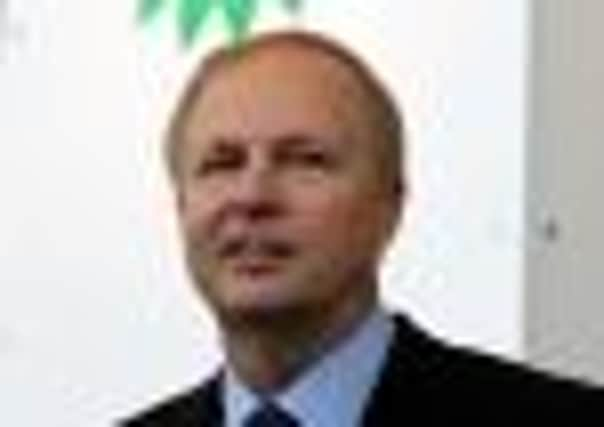BP urged by SLI to simplify executive pay policy


The fund manager, which owns 1.33 per cent of the oil giant, made the demand at BP’s annual meeting yesterday, where almost 6 per cent of shareholders voted against the group’s remuneration policy.
BP chief executive Bob Dudley, who took up the reins just months after the Deepwater Horizon oil spill in 2010, took home nearly $2.7 million (£1.7m) in pay and bonuses in 2012, despite profits plunging almost 19 per cent to $17.6 billion.
Advertisement
Hide AdAdvertisement
Hide AdDudley said last year’s steep reduction in profits “was in our plans” and reflected the group’s disposal programme, along with the lack of recorded income from its TNK-BP joint venture.
Guy Jubb, global head of governance and stewardship at the Edinburgh-based fund manager, told the board: “First, we want to see the remuneration policies at BP strengthened. In particular, we are concerned the executives have the potential to receive significant rewards for achieving unchallenging performance targets, which, as a matter of principle we oppose.
“Second, we want to see BP’s remuneration policies simplified. The 2013 remuneration policy... contains 15 different performance metrics to incentivise management.
“We want to see a simplified, cohesive policy demonstrably aligned with BP’s values and strategy.”
At yesterday’s meeting, 94.1 per cent of BP shareholders backed its pay plans, which the group said was the strongest level of support for “at least seven years”. A similar proportion favoured the re-election of chairman Carl-Henric Svanberg.
Jubb said SLI has voted against or abstained on remuneration-related resolutions at seven out of the last eight BP annual meetings and called on Svanberg to make sure the board reviewed its pay policies in the year ahead.
He added: “We want to see the remuneration committee raise its game and make significant improvements to address our concerns.”
Addressing investors at the meeting in London, Svanberg said he was determined to see BP recover from the Gulf of Mexico disaster, in which 11 workers were killed, and become one of the world’s “most admired and trusted companies”.
Advertisement
Hide AdAdvertisement
Hide AdHe said: “After Deepwater Horizon, we set a target to sell $38bn of assets, in order to safeguard our financial strength and we met this target in 2012, one year early. It means we have attractive, high-value assets that should generate returns for you, our shareholders.”
Investors are due to share a bigger-than-expected $8bn windfall after BP completed its exit from the TNK-BP business last month. The deal saw its stake in Rosneft, the world’s largest listed oil company by output, rise to almost 20 per cent.
Russia’s economy minister Andrei Belousov yesterday said it was considering selling a 19 per cent stake in Rosneft this year to speed privatisation. Rosneft is valued at about $77.5bn.
This would come on top of the stake already acquired by BP, Belousov added.